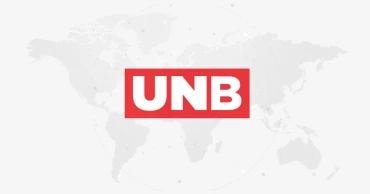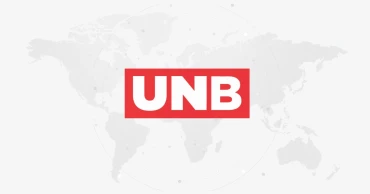power tariff hike
Power tariff hike from February 1, not March 1
Power tariff will be increased from February 1 instead of March 1, said State Minister for Power, Energy and Mineral Resources Nasrul Hamid on Thursday (February 29, 2024).
Gazette notification will be issued today in regard to the power tariff adjustment, he said while briefing reporters at his ministry.
Earlier he said the new tariff will come into effect from March 1.
He said the power tariff will be hiked between Tk 0.34 and Tk 0.70 per unit for all kinds of consumers depending on their volume of consumption while gas price will go up by Tk 0.75 per unit only for power plants.
Govt raises gas prices for power plants by Tk 0.75 per unit
He also said that a dynamic fuel pricing will be introduced for the consumers from March 1 under which price of petroleum fuel will go up and down in line with international market price.
“Each month fuel price will be declared for the consumers”, he said adding neighbouring India do this every day.
He noted that the steps have been taken to minimise the government losses caused by the increase in dollar rate. “This year the government will incur loss of Tk 43,000 crore due to sale of electricity at lower price,” he said.
This step has been taken as part of the government move to come out of the subsidy now being given to the power sector, said the minister.
According to the BPDB’s Annual Report 2022-23, the fiscal year saw the production of 87,024 million kilowatt hours of electricity at a total cost of TK 98,646 crore.
Its per unit production cost was Tk 11.33, while it was selling electricity at Tk 6.7 per unit — incurring a loss of about Tk 4.63 per unit.
Electricity price to go up from March 1: Nasrul
This imbalance has led to a staggering loss of Tk 47,788 crore for the fiscal year, as the government grapples with purchasing power from private and international sources at significantly higher rates.
With this huge loss, the government has been facing great trouble as it has to purchase electricity worth Tk 82,778 crore from private sector power producers, while it generates electricity worth Tk 13,307 crore from its own generation plants.
The annual report also shows that the BPDB’s average per unit production cost from its own plants is Tk 7.63, while it is Tk 14.62 at the independent power producers or IPPs (private sector), at rental plants Tk 12.53, at public plants Tk 6.85, and imported power from India at Tk 8.77.
The government purchases electricity from the private sector and India in dollars.
Read more: Bangladesh seeks ITFC cooperation to modernise power distribution, transmission system
2 years ago
BERC now to consult with govt before any move on retail power tariff hike proposals
Bangladesh Energy Regulatory Commission (BERC) will now consult with the government before any move towards holding a public hearing on retail power tariff hike proposals.
"We think we should first consult with the government before starting any process for public hearing on the submitted proposals”, Mohammad Bazlur Rahman, Member (Power) of the BERC, told UNB.
Such remarks from the BERC Member came against the backdrop of the government’s latest move to amend the BERC Act 2003 to create scope for the government to take arbitrary decisions on raising retail and bulk power and energy prices.
Read more: Raising retail power tariff: 3 more distribution companies submit proposals
“After the proposed amendment, the BERC should not move into any conflicting situation”, Bazlur Rahman said.
The Cabinet on November 28 approved an amendment to the BERC Ordinance 2022 to empower the government to set fuel tariff on its own under special circumstances without waiting for the commission’s public hearing and decision.
The approval came at the Cabinet meeting with Prime Minister Sheikh Hasina in the chair at the PMO, said Cabinet Secretary Khandker Anwarul Islam while briefing the media at the Secretariat.
He said the BERC can wait for up to 90 days to review and take a decision on fixing tariff rates and this is a long time. The amendment is being done so that the government can set the fuel price on an urgent basis in a situation like what prevails now.
The possibility of importing fuel and energy under private arrangement was discussed at the meeting and the relevant authorities were given direction in this regard, he said.
However, BERC Chairman Abdul Jalil, a former secretary of the government, was reluctant to make any comment before going through the gazette notification on the proposed amendment.
"Let me see the gazette notification first… Then the commission will decide on any issue relating to public hearing or tariff fixation”, he told UNB.
Meanwhile, all the six state-owned power distribution bodies submitted their respective proposals on raising retail power tariff in subsequent of the bulk power tariff hike.
Read more: BPDB submits retail power tariff adjustment proposal seeking a 19.44 percent hike
Sources said the six entities—BPDB, Bangladesh Rural Electrification Board (BREB), Dhaka Power Distribution Company Limited (DPDC), Dhaka Electric Supply Company Limited (Desco), Northern Electricity Supply Company PLS (Nesco), West Zone Power Distribution Company Limited (WZPDCL)—have placed almost an identical proposal to raise retail power tariff aby about 20 percent.
They moved to submit their proposals following the BERC’s decision to hike the bulk power tariff by 19.92 percent with effect from December 1.
As per the latest statistics, the financial loss of the state-owned Bangladesh Power Development Board (BPDB), the principal organisation in power sector and also the single buyer of electricity from private sector power plants, is likely to increase by Tk 18,094 crore in one year.
According to BPDB’s own latest estimates, the financial loss will cross Tk 48,000 crore in the 2022-23 fiscal from Tk 29,915 crore in the fiscal year 2021-22, an increase of almost 67%.
Sources said the BPDB’s revenue deficit has further increased due to its purchase of electricity at higher price and sale at lower price, the hike in petroleum fuel prices and also the price escalation of US dollars.
Officials said the recent 19.92 percent hike in the bulk tariff may help the BPDB to reduce its loss by only Tk 5,000 crore while a huge revenue deficit will remain a big burden.
Read more: Bulk power tariff hike won’t affect retail consumers right now: Nasrul Hamid
On the other hand, the bulk power tariff hike puts pressure on power distribution companies to submit their retail tariff hike proposal to the BERC to cover their own revenue gaps.
The retail power tariff was last raised in March, 2020 by BERC after holding a public hearing.
Through an announcement, the BERC had raised the power tariff on a weighted average by 5.3 percent at retail level with effect from March 1, 2020.
As per that decision, the retail power tariff was increased from Tk 6.77 to Tk 7.13 per unit (each kilowatt-hour).
Officials said the Power Division is under tremendous pressure from the Finance Ministry to raise power tariff in bulk and retail to cover its huge financial losses.
The recent commitment of the International Monetary Fund (IMF) to provide a $4.5 billion loan has increased the pressure as the donor agency has tagged a condition to decrease subsidy in the power sector and raise power tariff to cover the loss, said a Power Division official.
3 years ago



